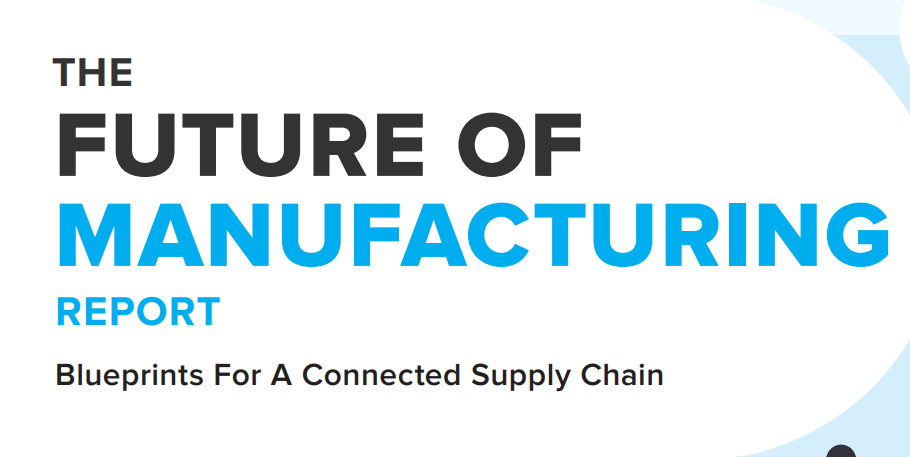Social media is changing the way SAP HR professionals work. Learn how using social media can help you do your job more efficiently and effectively.
With the explosion of social media — Twitter, Facebook, LinkedIn, just to mention a few examples — the lines are increasingly blurred between what is social and what is business. Many companies are realizing the business potential of social media and using these tools to their benefit. Social media can expand the company’s branding and convey the message that the company wants to send to its customers. However, it also can work quite well internally, as illustrated by the synergy created by HR departments using social media to help them do their jobs better.
I recently interviewed Thomas Jenewein, who is in charge of business development and solution management at SAP Education. In his role, Thomas has seen first-hand how effective social and workplace networking can be. Because of his experience, he is an enthusiastic proponent of teaching learning and development professionals and HR employees how to use social media to more effectively do their jobs.
Thomas, first off, why do you think that social media is so important for today’s SAP ERP HCM users?
With social media you can make communication, collaboration, and networking more effective — inside the enterprise, outside the enterprise with your clients, or in recruiting with your applicants and talent pool. Also, generation Y, which is entering the workforce over the next few years, uses social media as a normal tool, just as the current workforce uses email or fax. This new generation expects social media (like Facebook and Twitter) to be available at their desktops at work, and they are used to using social media for personal purposes as well for work-related purposes. Social media is a major new trend in SAP ERP HCM and, in the next few years, will become an increasingly important part of everyday life in the office as well.
What are the benefits to companies, and how does social media use benefit users in their careers?
If used right, social media can boost knowledge transfer, informal learning, and talent development. Through the involvement of employees, they can also improve employee motivation and engagement. As more employees start using these social media networks, expect to see an increase in their career motivation and engagement with their colleagues and in their specific areas of business. As noted above, for generation Y employees, it is important to have access to social media as part of their software tools’ arsenal — which makes it imperative that companies add (and use) these tools to remain competitive in the job market and to attract quality employees. Many companies already use tools like Facebook to increase their employer brand or to connect with former employees in alumni groups. With social media, employees are able to include their current and past work experiences, as well as their strengths, in their profiles, making them more visible to the talent market — within and outside their current companies. Using their personal profiles in this way helps the employee (i.e., with networking and learning more about colleagues in similar positions, as well as staying current with new developments in their areas of expertise), and it also helps their companies (i.e., exhibiting the high caliber of employee the company attracts and how qualified they are in their fields, which benefits both the company as well as the individual).
Are there any drawbacks to using social media, and if so, how can they be minimized?
I like the saying: A fool with a tool is still a fool. If you use social media incorrectly or without forethought, there will be negative consequences. For example, if wiki sites are not set up correctly they will evolve into knowledge graveyards, as did earlier evolutions of knowledge databases. If employees do not know which tool is appropriate to use for which task or goal, employees can become unfocused and ineffective. Also, and this is something that many managers are concerned with, discussions in community forums and blogs can become trivial and have no real added value if they are not facilitated and focused on business. In addition, it is imperative that social media not be used to discuss legally relevant or very sensitive topics openly, so discussion topics should be selected appropriately — an ongoing concern of business as the Web becomes more open and commonly used for business purposes.
Why do you think it’s important for SAP ERP HCM personnel, especially in learning and development, to use social media as one of their tools?
In talent development, shared learning as well as knowledge transfer can be improved. With social media you can foster social learning — for example, employees discussing current projects and sharing solutions, or completing exercises together after a course. The power of social networks can be used to make the internal talent marketplaces more transparent — where employees represent their profiles openly — which gives individuals and businesses more career opportunity options.
Personnel in learning and development can easily use existing skills in leveraging social media inside corporations — for example, facilitation skills can be used to build virtual communities or instructional design skills can be used to create new media such as videos or podcasts.
Do you find resistance from users who are reluctant to use the new social media? If so, why? What do you have to say to them to convince them about why social media is important and how will it help them do their job better?
Aside from the early adopters and some other eager new learners, when introducing new ways of doing things you will always find some people who are concerned about changing the way things are done. In social media, in particular, employees may be concerned about personal privacy and the blurred lines between their business lives and personal lives. Along with this come questions about data privacy in general (e.g., who sees which discussions, and how is that data being analyzed and used?). It is very important to address these concerns openly and honestly, and show positive examples of social media in the workforce and how it adds value. In general, as with many innovations (the most recent examples being email and the increased use of computers in general), these new methods are not going to go away. Therefore, it is important to allay employees’ concerns, but at the same time gain their acceptance to using these tools appropriately. While encouraging employees to embrace these new tools, do not lose sight of your company’s particular business as well as its unique corporate culture.
Does using social media replace any tools that HR professionals are currently using — if so, why is social media better or more effective than what they are using now?
Some parts of static intranets and company portals may go away, and will be replaced with wikis or similar tools. Radical believers and evangelists of social media even say that social media, such as Facebook with its communications tools, ultimately will replace email. I don’t personally think that Facebook or any other social media will completely replace business email, but, rather, that it will become just an additional tool for businesses to use. Most social media enable users to collaborate, edit information, and publish their own information more easily, so, as with Wikipedia, it is using the wisdom of a large pool of people. Most social media tools are also user centric, not expert systems, and thus are easy to learn how to use.
Has social media changed how HR employees do their jobs?
Yes. You can see it very clearly in recruiting already. Many HR employees use social networks like LinkedIn to search for and vet candidates; Wikipedia and video podcasts from iTunes University are used as learning tools; and so on. The future impact of social media on HR, on both sides of the marketplace (i.e., employees and employers), is limitless — we are only beginning to explore its potential.
How would you recommend that HR personnel begin using social media? Do you have a few quick steps to get them started using social media on the job?
I have three easy first steps, especially if you are new to social media.
First, user experience — try out social media yourself. You can do a quick start in some seminars, but I recommend that you explore several tools that are already available. For example (a list of recommended links can be found at the end of this article):
- Follow experts and leaders on Twitter and read their blogs
- Network with peers of the same profession via LinkedIn and take part in discussions
- Listen to podcasts on HR topics
- Start your own blog — you can use this for reflection, but also as your own marketing tool
- Use social media to solve daily questions in discussion groups or slideshare
- Use social media as a team (e.g., post your newsletter in a blog and thereby foster discussions, use Googledocs for your travel planning, or use tools like Doodle to decide on event planning).
Second, perform an as-is analysis of your company — what social media options are already available and being used? Instead of purchasing your own social media tools for HR or signing up for a paid social media outlet, check with the relevant stakeholders in IT, communication/PR, marketing, and knowledge management. Then, if nothing exists internally that you can leverage, you can look outside the company. In today’s economy, it may be hard to make a case for paying for social media tools, but there are many free tools and content on the Web for you to make use of, especially initially.
Third, and finally, pilots and integration. What I mean by this, is, if you are new to social media it makes sense to use pilot cases that are easy and show immediate, positive results. For example, facilitate discussions after a course in a forum and use wikis for creating FAQs on your company Web site (e.g., FAQs about ERP software). You also may want to integrate forums in the ERP Help (easily possible with SAP NetWeaver 7.3) so that end users can help themselves. In the learning department you could integrate social media in your learning architecture, which describes all media, methods, and tools that support learning.
What do you think will be the next big thing in social media? How is SAP going to address this new trend?
SAP uses social media in many ways internally already — developers use the developers’ network, employees, the employee network — and there they can use different social media from wikis, discussion groups, micro-blogs, video sharing, and more.
Second, to run business better, SAP is present in Facebook, LinkedIn, Twitter, and various other tools to engage with customers and partners.
And third, SAP already offers customers tools to use; for example, a stand-alone tool like SAP StreamWork, a collaborative decision-making application. It is available for free trials, on demand. Another solution — SAP Sales OnDemand — for collaborative sales, is already available as well. In SAP Business ByDesign social media, like forums, are integrated into the help center — so users can also discuss questions with peers and experts.
The first SAP ERP HCM application where social media is integrated is SAP Career OnDemand, which uses elements like the employee profile; the ability to create status updates and feeds, and receive notifications and requests; and using the network concept as its social foundation to increase the positive outcome of business processes, such as employee performance and development management. For more information about SAP Career OnDemand, refer to these two sources:
In SAP’s Learning Management System (LMS) we integrate social media in different ways. For example, we create interfaces to collaboration platforms (i.e., the integration to the c-rooms) to embed collaboration as part of courses or curricula. Thus you can formalize informal learning as part of learning management. In extended learning scenarios we integrate course ratings and comments, so that participants benefit from the experience of other participants in an “Amazon-like” experience. Watch out for future news on our LMS – SAP Enterprise Learning/ Learning Solution for upcoming innovations.
Do you have any more information about how HR personnel can learn more about social media — some Web links or articles that they can read?
Here is a list of some online resources that I have found particularly helpful when getting started with social media.
SAP-related resources:
Articles:
Free learning content:
Relevant podcasts:
Other social media tools:
Thomas Jenewein
Thomas Jenewein is in charge of business development and solution management at SAP Education. Before this role, he led an SAP internal learning and development team responsible for strategic learning programs and new media. He studied organizational psychology in Mannheim, Germany, and San Diego, California, and is passionate about learning management, new media, knowledge management, and people development. You may contact Thomas via LinkedIn or via his Twitter Account.
You may contact the author at thomas.jenewein@sap.com.
If you have comments about this article or publication, or would like to submit an article idea, please contact the editor.
M.S. Hein
M.S. Hein is managing editor of HR Expert and BI Expert. You may follow her on Twitter (@MS_Hein).
You may contact the author at margaret.hein@wispubs.com.
If you have comments about this article or publication, or would like to submit an article idea, please contact the editor.






